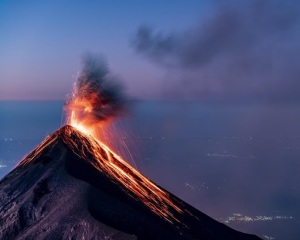AFRICA
Eswatini attacks on schoolchildren
by George Shaw

Eswatini, the sole remaining absolute monarchy in Africa, has been condemned for excessive force against protesting school children. UN Secretary General Antonio Guterres expressed concern at “the […] deployment of armed security forces at various schools, reports of excessive use of force in response to student demonstrations, and the indefinite closure of schools”. Guterres further urged that the regime be mindful of the UN Convention of the Rights of the Child and of the adverse long-term effects of violence on young people.
Students have joined opposition parties and unions to protest the regime of King Mswati III, ruler of the country since 1986. He has drawn criticism over time for his lavish lifestyle in one of the continent’s poorest countries, as well as execution of protestors and torture of foreign journalists, the most recent protests against him being one of many.
ASIA
Lobbying leak raises difficult questions ahead of COP26
by Iwan Roberts

Leaked documents have revealed a lobbying campaign directed at a UN scientific report on the threat of climate change. While the majority of submissions made by states worldwide are consistent with the report’s goal of bringing together evidence in order to constructively shape climate policy, Saudi Arabia, Japan and India are among the countries challenging the speed recommended by the UN for the reduction of fossil fuels.
An adviser to the Saudi oil ministry, a representative of the second largest producer and largest exporter of oil in the world, advised that the report removes recommendations for “urgent and accelerated mitigation actions at all scales.” Indian officials have also insisted that coal will mainly fuel the country for the next few decades, representing a potential roadblock to the upcoming COP26 climate conference’s plans to phase out the use of coal.
China denies testing new missile
by Toby Gill

China has denied reports that testing of a nuclear capable hyper-sonic missile took place earlier this year, after a Financial Times report alleged such a test taking place on 27 July. The report suggested that a hypersonic missile entered and exited orbit, travelling more than five times the speed of sound earlier this summer.
Chinese Foreign Ministry spokesman, Zhao Lijian, denied testing a new weapon and alleged ‘this was not a missile; this was a spacecraft’. Mr Zhao also cited other countries which are pursuing such technology, adamantly rejecting claims of a Chinese test.
This comes just days after reports of a North Korean submarine-launched ballistic missile being fired into waters off the coast of Japan, amid rising tension between the countries. The Biden administration has expressed concern, and promised to ‘respond in kind’.
EUROPE
The burning question for La Palma: When will the lava stop?
by Rachael Ward

Lava continues to flow in La Palma as the volcanic episode enters its second month of activity. The animal airlift is gathering pace as helicopters rescue stranded dogs and farm animals from the remnants of fire. Sweeping away most structures in sight, the volcano has taken its toll on the people of La Palma.
The cost of the eruption is compounded by reported breathing difficulties and irritation to the skin. Over 21 miles of road have been caught up in this confrontation with nature. Poor air quality has restricted access to the area nearby the volcano, while residents brace themselves for a brush with a burning heat. As homes are swept away and livelihoods destroyed, no one can seem to predict when normality will be restored.
UK discuss advanced electrical propulsion systems for Indian warships
by Luke Jones

In timing with the carrier strike group’s passing and the Foreign Secretary and Chief of Defence Staff’s visit, the UK met with Indian officials in Mumbai on 22 October to discuss the provision of advanced electrical propulsion systems for their warships. By various measures it is generally understood to perform better and be greener than conventional systems.
The UK is the leader in this technology which is currently used by the Type 23 frigate, Type 45 destroyer and even the Royal Navy’s largest warship, HMS Queen Elizabeth. As well as adding to the UK’s already booming defence industry—second only to the US—such a deal ties into the Government’s Indo-Pacific tilt and the India-UK comprehensive strategic partnership. However, the likelihood of New Dheli taking up this more expensive technology in these early stages will be better understood over the coming weeks.
NORTH AMERICA
Kidnapping crisis in Haiti
by Eleanor Austin

On 16 October, 17 missionaries from America and Canada were kidnapped by the infamous 400 Mawozo gang. The Christian Aid missionaries, who were working to support Haitian schools, have not yet been found and there has been a $1 million ransom placed upon each victim.
This kidnapping has been extremely tragic, with the youngest hostage being only eight months old. However, for Haitians this is not a rare event. In the past year, alongside significant political and environmental turmoil, gang violence has skyrocketed. In Port-au-Prince, where the missionaries were taken, gangs are predicted to control 60 percent of the area. A devastating side effect of this violence has been kidnappings, which have tripled since 2020.
This crisis has affected thousands of Haitian families, it has become their norm, yet it took 17 missionaries to highlight to a global audience its magnitude.
OCEANIA
Australia starts to reopen, both internally and internationally
by Connor Crout

The people of Melbourne are celebrating as Melbourne has come out of lockdown, the final state capital to do so. Melbourne, which endured over 260 days of restrictions across six different lockdowns, has reopened and the reason, according to authorities, is because 70 percent of over-16s are fully vaccinated.
Australia, since the start of the pandemic, has always been one of the toughest countries in the world in dealing with Covid – international travel was heavily restricted in March 2020, with entry only permitted for Australian citizens and others with exemptions. When Australia’s international border reopens in November, there will still be restrictions on travel both to, and from, Australia.
Australian Prime Minister Scott Morrison has said ‘It’s time to give Australians their lives back’ – with restrictions still in place, time will tell what Australian lives will look like post-lockdowns.
SOUTH AMERICA
Colombia’s most wanted faces extradition
by Harry Padoan

One of Colombia’s most notorious drug lords, Dairo Antonio Úsuga, who is known as Otoniel, has been captured in Antioquia province. Otoniel’s exploits included the smuggling of around 73 metric tonnes of cocaine into the US between 2003 and 2014. Officials in the USA had placed a bounty of $5 million on Otoniel’s head, who have ordered the prisoner to be extradited with immediate effect.
The capture required the work of 500 soldiers supported by 22 helicopters – a police officer was killed during the operation. Otoniel’s gang controls many of the drug smuggling routes to nations across the world, from the USA to Asia. Despite such a grand operation, it is widely believed that a new capo will simply replace Otoniel, with a decline in demand for cocaine looking very unlikely.
